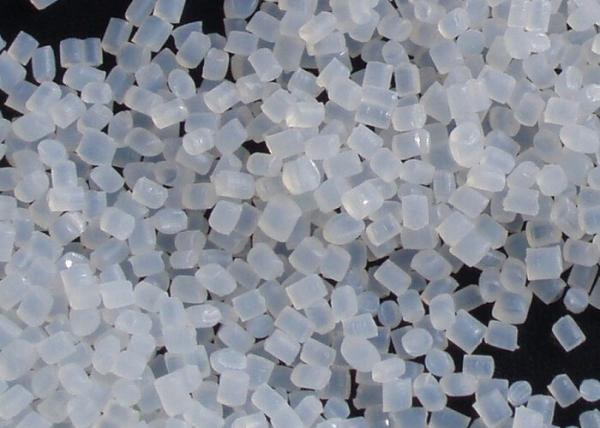Neilona sveķiem, universālam un plaši izplatītam materiālam, ir nozīmīga loma mūsu ikdienas dzīvē. Tā pielietojums ir ļoti plašs, sākot no apģērba, ko valkājam, līdz pat automašīnām, ar kurām braucam. Šajā rakstā iedziļināsimies aizraujošajā neilona sveķu pasaulē, pētot to īpašības, daudzveidīgo pielietojumu un atšķirīgās priekšrocības.
Ievads neilona sveķu jomā
1.Kas ir neilona sveķi?
Neilona sveķi, pazīstami arī kā poliamīds, ir sintētisks termoplastisks polimērs, kas pazīstams ar savu izturību, elastību un nodilumizturību. Tas veidojas, ķīmiskā reakcijā, ko sauc par polikondensāciju, apvienojot diaminus un diaskābes. Iegūto materiālu var kausēt, formēt un ekstrudēt dažādās formās, tāpēc tas ir ļoti universāls daudzām vajadzībām.
2. Vēsture un attīstība
Neilona sveķu vēsture aizsākās 1931. gadā, kad ķīmijas speciālists Vollass Kerokterss (Wallace Carothers), kurš strādāja uzņēmumā DuPont, polimēru izpētes laikā nejauši atklāja duļķainu, šķiedrai līdzīgu vielu. Šis atklājums izraisīja apvērsumu tekstilrūpniecībā, un tā rezultātā tika izstrādāta pirmā komerciāli veiksmīgā sintētiskā šķiedra - neilons. Kopš tā laika šķiedra ir nepārtraukti attīstījusies, izstrādājot dažādus tās veidus, lai apmierinātu īpašas vajadzības.
3. Neilona sveķu veidi
Ir daudz neilona sveķu veidu, un katram no tiem ir unikālas īpašības un pielietojums. Daži no visbiežāk sastopamākajiem ir šādi:
- Neilons 66 (Neilons 6,6):Tā ir slavena ar savu izcilo izturību, nodilumizturību un augsto kušanas temperatūru, tāpēc tā ir ideāli piemērota, piemēram, paklāju, zobratu un inženiertehnisko komponentu izgatavošanai.
- Neilons 6:Nodrošina labu izturības, elastības un ķīmiskās izturības līdzsvaru, parasti tiek izmantots tekstilizstrādājumu, apģērbu un pārtikas produktu iepakojuma ražošanā.
- Neilons 12:Zināms ar augstu triecienizturību un zemu berzes koeficientu, bieži tiek izmantots zobratu, gultņu un cauruļu izgatavošanā.
- Neilona lējumi:Tam piemīt izcila apstrādājamība un izmēru stabilitāte, piemērots tādu nodilumizturīgu detaļu kā zobrati un rullīši izgatavošanai.
Neilona sveķu īpašības
Tam piemīt unikāla īpašību kombinācija, kas padara to par vērtīgu materiālu dažādās nozarēs.
- Izturība un izturība
Tam piemīt ievērojama izturības un svara attiecība. Tas ir izturīgs pret nodilumu, plīsumiem un ķimikālijām, tāpēc ir ideāli piemērots lietojumiem, kam nepieciešama ilgstoša veiktspēja sarežģītos apstākļos.
- Karstumizturība un ķīmiskā izturība
Dažādiem neilona veidiem ir dažāda karstumizturības pakāpe. Daži no tiem spēj izturēt augstu temperatūru pirms izkausēšanas, tāpēc tie ir piemēroti automobiļu detaļām un elektrotehnikas lietojumiem. Turklāt tas ir izturīgs pret daudzām izplatītām ķīmiskām vielām, tostarp eļļām, smērvielām un sārmiem.
- Lietojumprogrammu daudzpusība
Spēja modificēt neilona sveķus, izmantojot piedevas un apstrādes metodes, ļauj pielāgot to īpašības. Šī daudzpusība padara to pielāgojamu visdažādākajiem lietojumiem, sākot no tekstilizstrādājumiem un apģērba līdz inženierkomponentiem un medicīnas ierīcēm.
Neilona sveķu izmantošana
Tā daudzveidīgās īpašības ļauj to izmantot visdažādākajos veidos. Lūk, ieskats dažās svarīgākajās nozarēs, kurās izmanto šo daudzpusīgo materiālu:
1. Automobiļu rūpniecība
Tā izturības, nodilumizturības un karstumizturības dēļ tai ir būtiska nozīme automobiļu rūpniecībā. Pielietojums:
- Dzinēja sastāvdaļas, piemēram, pārnesumi, siksnas un šļūtenes.
- Interjera detaļas, piemēram, instrumentu paneļi, durvju paneļi un paklāji.
- Komponenti zem motora pārsega, piemēram, gaisa ieplūdes kolektori un radiatora ventilatora apvalki.
2. Tekstilrūpniecība
Neilons izraisīja revolūciju tekstilrūpniecībā, piedāvājot stipru, vieglu un pret krokām noturīgu alternatīvu dabiskajām šķiedrām. To plaši izmanto:
- Apģērbs, piemēram, sporta apģērbs, zeķes un virsdrēbes.
- Paklāji un paklāji
- Rūpnieciskie audumi filtrēšanai un pastiprināšanai
3. Patēriņa preces
Tā daudzpusība attiecas uz plašu patēriņa produktu klāstu, tostarp:
- Sporta inventārs, piemēram, tenisa raketes un makšķeres.
- sadzīves priekšmeti, piemēram, rāvējslēdzēji, zobu birstes un sari.
- Elektroierīces, piemēram, korpusi un savienotāji
4. Medicīnas lietojumprogrammas
Konkrētu neilona veidu biosaderība un izturība padara tos piemērotus dažādiem medicīniskiem lietojumiem:
- Šuves un šuves brūču slēgšanai
- Protēžu sastāvdaļas, piemēram, mākslīgās locītavas un saites.
- Medicīniskās ierīces, piemēram, katetri un caurules
Neilona sveķu priekšrocības
Neilona sveķu plašo izmantošanu veicina vairākas priekšrocības:
- Viegla daba
Salīdzinot ar dažiem tradicionālajiem materiāliem, piemēram, metālu, tas nodrošina ievērojamu svara samazinājumu. Šī priekšrocība ir ļoti svarīga, piemēram, automobiļu detaļām un lidaparātu sastāvdaļām, kur svara samazināšana nozīmē degvielas patēriņa efektivitātes uzlabošanu.
- Izmaksu efektivitāte
Tā ir rentabla alternatīva daudziem citiem materiāliem. Efektīvais ražošanas process un viegli pieejamās izejvielas padara to par pievilcīgu izvēli dažādās nozarēs.
- Ietekme uz vidi
Lai gan jebkura materiāla ietekme uz vidi ir rūpīgi jāapsver, neilona sveķi piedāvā dažas priekšrocības. Tā izturība samazina biežas nomaiņas nepieciešamību, un, pateicoties progresam pārstrādes tehnoloģijās, neilona sveķi kļūst par pirmo izvēli.
Secinājums
Neilona sveķi ir kļuvuši par moderno materiālu stūrakmeni, revolucionizējot nozares no tekstilrūpniecības līdz inženierzinātnēm. Tā unikālā izturības, ilgmūžības, daudzpusības un rentabilitātes kombinācija ir padarījusi to par neaizstājamu materiālu visdažādākajiem lietojumiem. Tā kā pētniecība un izstrāde turpina uzlabot neilona sveķu īpašības un paplašināt to pielietojumu, tā ietekme uz mūsu pasauli turpmākajos gados noteikti kļūs vēl nozīmīgāka.
Biežāk uzdotie jautājumi par neilona sveķiem
J: Kā tiek ražots neilona sveķi?
To iegūst polimerizācijas procesā, kurā notiek diamīnu un diacīdu kondensācija. Konkrētais process atšķiras atkarībā no vēlamā neilona sveķu veida.
J: Kādas ir neilona sveķu un citu materiālu atšķirības?
Tā atšķiras no citiem materiāliem, piemēram, metāliem un dabīgām šķiedrām, pateicoties unikālajam īpašību apvienojumam:
- Izturība un izturība:Neilona sveķi nodrošina metāliem pielīdzināmu izturību, taču ir ievērojami vieglāki. Salīdzinot ar dabīgajām šķiedrām, tas ir arī izturīgāks pret nodilumu, nodilumu un plīsumiem.
- Daudzpusība:Neilona sveķus var formēt, ekstrudēt un savērpt dažādās formās un veidos, tāpēc tos var pielāgot visdažādākajiem lietojumiem.
- Rentabilitāte:Neilona sveķi parasti ir lētāki nekā daudzi metāli un nodrošina līdzīgu veiktspēju par zemāku cenu.

